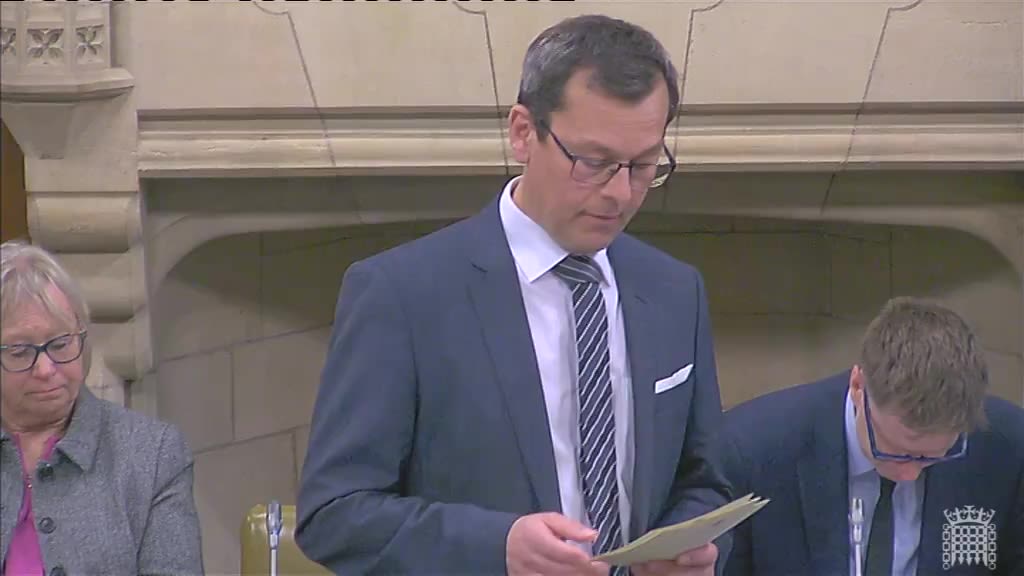Why are MPs debating food labelling and support for people with allergies?
Petitions Committee

Introduction

This debate was triggered by two petitions calling for actions on food allergies. One petition asked the Government to change the laws around food labelling, the other to create a Government allergy 'tsar' to act as a champion for those with allergies.
Read the petitions:
Appoint an Allergy Tsar as a champion for people living with allergies
This petition received 20,518 signatures. It stated:
"The Government should appoint an Allergy Tsar to act as a champion for people with allergies to ensure they receive appropriate support and joined up health care to prevent avoidable deaths and ill health."
'Owen's Law' - Change the law around allergy labelling in UK restaurants
This petition received 12,889 signatures. It stated:
"Restaurants should put all information about allergens in their food on the face of the main menu so customers have full visibility on what they're ordering. Servers must initiate a discussion with customers about allergies on all occasions. There should be a national register for anaphylaxis deaths."
The Petitions Committee scheduled a debate on these petitions in the House of Commons on Monday 15 May 2023 at 4.30pm.
To inform the debate, Nick Fletcher MP, the member of the Petitions Committee who opened the debate, heard from the petition creators, experts from the food catering industry and representatives from allergy support charities.

Petitions Committee Survey
Before the debate, the Petitions Committee conducted a survey of petitioners to ask about experiences of dining out with food allergies. We also asked about their thoughts on how Government support for those with allergies could be improved. We received 1,640 responses.
Respondents said that suffering allergic reactions whilst eating in food outlets was caused by staff failing to provide accurate information on allergens. They also said they did not feel confident ordering food from food outlets.
Respondent: “Sadly it’s more about pot luck every day - however many EpiPens you have or up to date information – it just takes one minor mistake in labelling or info to change your life for ever.”
Respondent: “I rarely eat out because people simply aren't educated enough in allergies. I often find people think it's not as serious as it is. It's also really embarrassing when you are refused to be served because a restaurant won’t take the risk in feeding you.”
Respondents gave a mixed response about their satisfaction with NHS care for allergies
- Of the respondents who had a food allergy, 35% said their care was 'very good' or 'good'.
- 12% said their care was ‘excellent’.
- In comparison, 22.7% said their care was ‘poor’.
Respondent: “[I] went into anaphylactic shock at home after a meal out. Had 3 paramedics who took me to hospital. Everyone was amazing. Reassured my husband and took amazing care of me. My GP after was fantastic, straight away gave me my EpiPens and ensured I was referred to find out the allergen I had.”
Some respondents expressed concern about the NHS care available for those with allergies
Respondent: “The only way the NHS will help me is if I have a reaction and it’s wrong. We need more support and the NHS needs more people trained to help those with allergies.”
“It depends on which Doctor you see. Some fantastic allergy specialists who are over-subscribed and impossible to get appointments with. Other doctors are clueless about allergy information. Will not be able to answer simple questions and will not take allergies seriously.”
You can read the summary of responses on our website.

The Debate

Opening the debate, Nick Fletcher MP gave the following statement:
"I thank the petitioners for their campaign; I know that they are here today. Together, the petitions have received over 33,000 signatures. [...] I will discuss why the petitioners are asking for these measures. Sadly, they have suffered unbearable losses."
"Natasha Ednan-Laperouse died in 2016 after eating a baguette that did not have a complete list of ingredients. The baguette contained sesame seeds, to which Natasha was allergic. That caused her to suffer an allergic reaction, which resulted in her death. She was only 15—so young. Natasha’s parents Tanya and Nadim have already been successful in their campaign for Natasha’s law, which enforces a requirement for all pre-packed sandwiches to contain a list of ingredients and which became law in October 2021."
Nick continued:
"The second petition was started by Owen Carey’s sister Emma. Owen suffered from multiple allergies all his life and was used to ordering meals for his restricted diet. In April 2017, he ordered a chicken burger at a restaurant.
"He explained his allergies to the server; with no other information available, he was assured that he was safe. However, the chicken was marinated in buttermilk, to which Owen was very allergic.
"He knew instantly that something was wrong. He had a massive reaction and, after 45 minutes, collapsed and died. He died celebrating his 18th birthday—again, so young.
"They were both young people with their entire life ahead of them. We can all clearly see why Natasha and Owen’s families want to stop anyone else going through this."
Concluding the debate, Nick said:
"I hope the petitioners believe that they have heard a good debate today. We have heard an awful lot from people who understand this subject.
"They all want to help to bring everything together and ensure that the incidents and tragedies that have happened to the petitioners do not happen again.
"It seems to me that there is a lot of work going on, but in many cases it is siloed working, and a tsar would be able to bring it together. We could pick up the pace with that and prevent tragedies like those we have discussed from happening again."

Minister for Primary Care and Public Health, Neil O'Brien MP, responded to the debate. He said:
"Food businesses are all under the same legal obligation to provide information at the point of sale indicating the presence of the 14 major allergens. Natasha’s law, which the Government introduced in 2021, requires all pre-packed direct-sale food such as grab-and-go sandwiches to have a label that shows the ingredients and allergens.
"That is important in helping people with allergies to feel confident that they are choosing safe food.
"There are a number of issues relating to improving labelling for people with serious allergies. They are not arguments against doing anything; they are just issues that we must grapple with as we work out how to make progress.
"One is how we avoid potentially dangerous out-of-date information on menus, particularly for smaller restaurants, which change their ingredients more frequently. We cannot have false reassurance.
"Another challenge that we have to grapple with, and are grappling with, is how to avoid some smaller businesses taking away a lot of choices for people with allergies by simply labelling too many items as containing allergens.
"Such businesses may have small kitchens that work with lots of different products and multiple allergens. We cannot take away lots of choices for people with allergies; we want them to have the freedom of choice that everyone expects to enjoy, but to have safety at the same time."

Watch the debate
MPs debated this petition on 15 May 2023. You can watch the full debate below or read the debate transcript on Hansard.
Read the information pack from the House of Commons Library: Debate on disability benefits assessments and the Government’s health and disability green paper.
Petition debates
Petition debates can be an important part of a campaign. Debates help raise awareness of an issue and can influence decision-making in Government and Parliament.
Petition debates are 'general' debates which allow MPs from all parties to discuss the important issues raised by one or more petitions, and put their concerns to Government Ministers.
Petition debates don’t end with a vote to implement the request of a petition. This means MPs did not vote on the requests of the petitions at the end of the debate.
Petition debates are held in Westminster Hall.
How Parliament works: Westminster Hall debates.
What is the Petitions Committee?
The Petitions Committee is a cross-party committee of MPs that considers e-petitions submitted on Parliament's petitions website and public (paper) petitions presented to the House of Commons, engaging the public directly with the work of the House.

